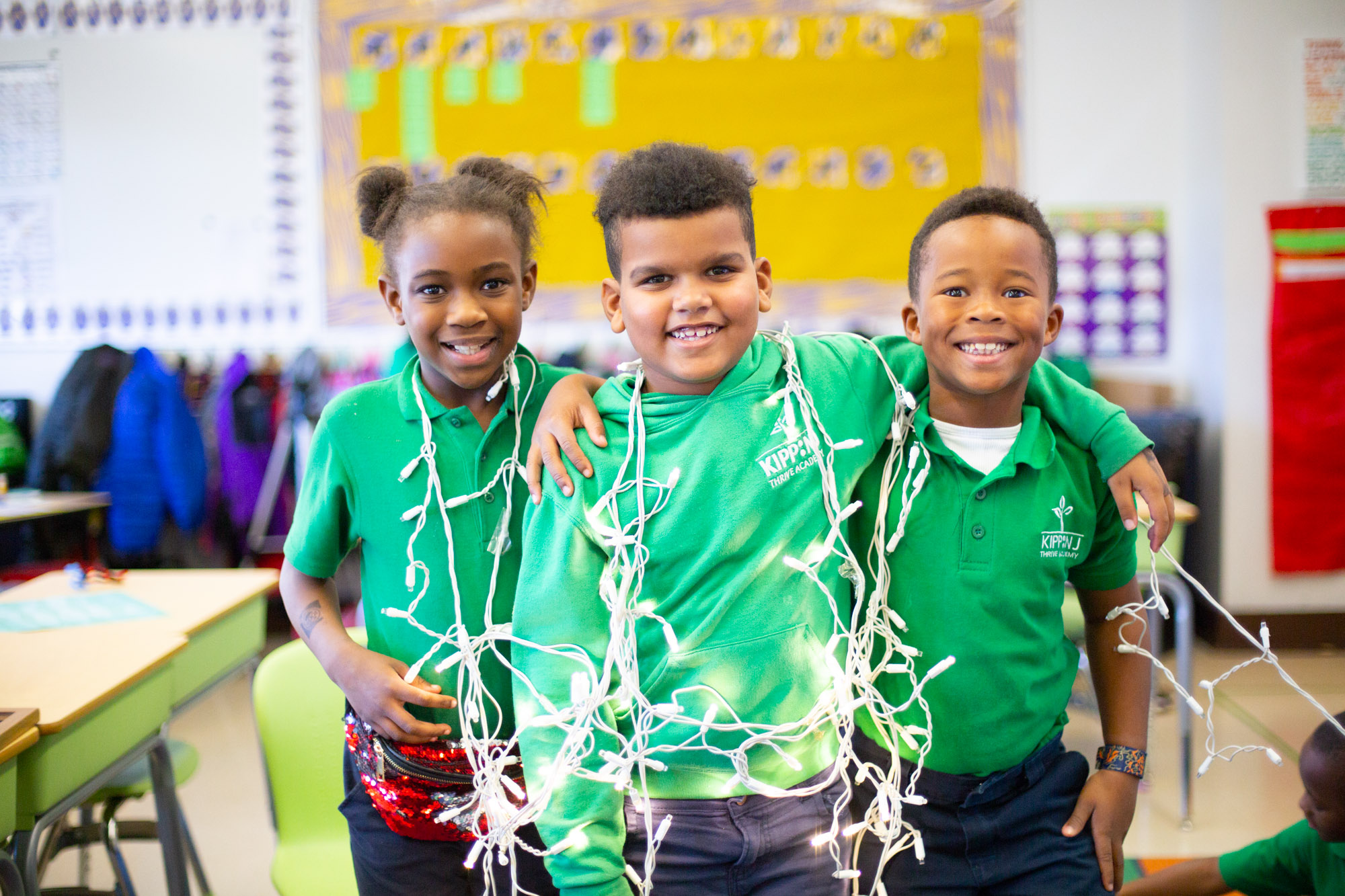Research shows that teachers know financial literacy is an essential skill but may not know how to bring those lessons to students. To address this issue, Charles Schwab Foundation teamed up with DonorsChoose to inspire and uncover teachers’ best-in-class ideas for helping their students strengthen their financial literacy skills.
We called on teachers across the country to submit their best ideas for introducing these key concepts to students, and financial literacy experts chose the most innovative projects. We asked the public to vote for their favorite project, and the winning teacher, Ms. Bains, won $1,000.
Check out lesson plans for your class from our finalists below!
Finalists & Project Curriculum
Congratulations to Ms. Bains, winner of our public voting!
Entrepreneurs in the Making
Ms. Bains | Grades PreK–2 | Sacramento, CA | Lesson Plan
Ms. Baines is helping her kindergartners build an even brighter future by providing a strong foundation in basic financial literacy principles.
Congratulations to our other finalists below!
💻 indicates that this lesson plan contains a distance learning adaptation!
Making Sense of Money And Becoming Financially Responsible
Ms. Trochez MacLean | Grades PreK–2 | Los Angeles, CA | Lesson Plan 💻
Ms. Trochez MacLean is helping her students develop coin recognition, understand the importance of saving, learn how to determine the values of different coin combinations, and grasp the difference between wants and needs.
Roller Coasters + Rube Goldberg = Financial Literacy!
Mrs. Martel | Grades PreK–2 | Toccoa, GA | Lesson Plan
Mrs. Martel is engaging her students in a combination of science and financial literacy as they budget for, plan, and will ultimately build model roller coasters in class.
Teaching Money Skills and Inspiring Kindness
Ms. R. | Grades PreK–2 | Tucson, AZ | Lesson Plan
Guided by the belief that children often learn best by following the examples of others, Ms. R. will create math and financial literacy lessons based on engaging books with characters who use money to help others and promote kindness.
Classroom Transformation: Classroom Economy!
Ms. Witherell | Grades 3-5 | Greenfield, MA | Lesson Plan
Ms. Witherell wants to turn her classroom into an economic learning center with several stations for students to work on financial literacy. At the end of each activity, the class will debrief together on what they learn from each station, how they were able to save money, and the economic challenges they faced.
Entrepreneurial Skills With Osmo Pizza Co.
Mrs. Brown | Grades 3-5 | Van Buren, AR | Lesson Plan 💻
Mrs. Brown will use her Osmo Pizza kit to teach her students real-world math, financial literacy concepts, and emotional intelligence.
Sustainable Financing
Dr. Robinson | Grades 3-5 | Raleigh, NC | Lesson Plan
Dr. Robinson will engage her students in developing a business plan for creating sustainable products in class, which they’ll then learn how to market. Their proceeds will ultimately go to support real-life international micro-loans students will help select through the nonprofit KIVA!
Creating a Mini Classroom Economy
Ms. Posluszny | Grades 6-8 | Union City, NJ | Lesson Plan 💻
Ms. Posluszny is bringing real-world scenarios into her classroom, such as, performing jobs to earn (pretend) money to help her students experience first hand the impact of their decisions to save, spend, and budget.
Tales from the Crypto (Currency) Keeper
Mrs. Novicky | Grades 9-12 | Akron, OH | Lesson Plan 💻
Mrs. Novicky's students will experience how blockchain and cryptocurrency work through the development of a token economy, where students will create a cryptocurrency, and then utilize that cryptocurrency in class to manufacture product, ultimately demonstrating cryptocurrency's roll in the transfer of goods.
The Big Deal Behind the New Deal!
Mr. Barbosa | Grades 9-12 | Mission, TX | Lesson Plan 💻
Mr. Barbosa and his students will explore the different ways the New Deal provided for improvements and infrastructure in our National Parks and how the New Deal attempted to address and provide for the different budgetary needs of individuals during the Great Depression.
Thank you to these teachers for their inventive ideas and lesson plans! Inspired to create your own financial literacy project? Get started.






.jpg)
.jpg)

.png)




.png)

